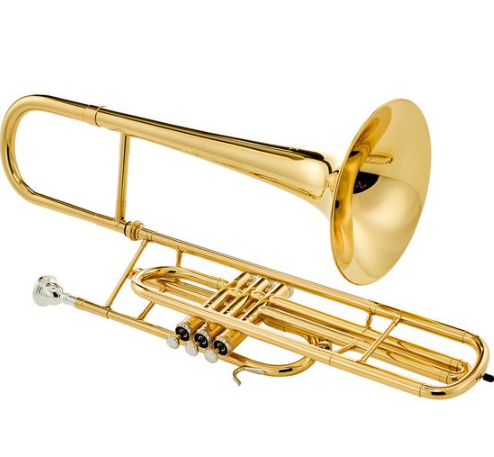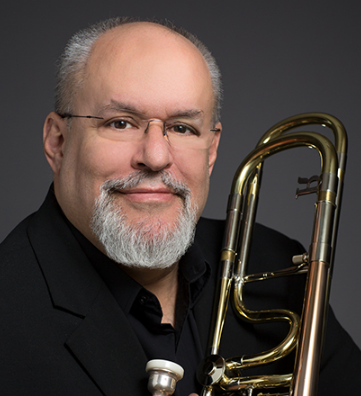An expensive trombone, can range from $2,000 to as high as $15,000. This cost varies depending on factors such as brand, materials, craftsmanship, and market conditions.

Expensive trombone brands and prices
| Type of Trombone | Approximate High-End Price Range (USD) |
|---|---|
| Alto Trombone | $2,500 – $5,000 |
| Tenor Trombone | $3,000 – $7,000 |
| Bass Trombone | $4,000 – $10,000 |
| Soprano Trombone | $2,000 – $4,000 |
| Contrabass Trombone | $6,000 – $15,000 |
| Valve Trombone | $3,500 – $7,000 |
| Superbone (Valve & Slide Trombone) | $5,000 – $10,000 |
Brand Influence on Trombone Prices
Trombone pricing is influenced significantly by the brand of the instrument. Renowned manufacturers are known for their quality craftsmanship, superior materials, and a sound that is often favored by professionals. However, this does not mean that lesser-known brands can’t offer good quality trombones. It’s crucial to understand the brand’s influence on the pricing and make an informed decision when purchasing a trombone.
Renowned Trombone Manufacturers
Some of the most renowned trombone manufacturers include Yamaha, Bach, Conn, and King. These brands have been in the industry for years, and they have built their reputation by offering instruments of exceptional quality.
- Yamaha offers a range of trombones suitable for beginners to professionals. The brand is known for its reliable build and excellent sound quality.
- Bach is famous for its high-quality brass instruments. Their trombones are favored by many professional players for their rich, full tone.
- Conn is another well-respected brand in the trombone world, renowned for its distinctive and warm trombone sound.
- King is a brand that has been trusted by numerous famous trombonists. Their instruments are known for their durability and excellent playability.
Comparison of Brand Pricing
Trombone prices vary greatly between different brands. For example:
- A beginner’s Yamaha trombone might be found for around $800-$1000, while a professional model could cost up to $3,000.
- Bach trombones tend to be more expensive, with professional models often costing around $3,500.
- Conn offers trombones in a similar price range as Yamaha and Bach, with professional models being in the region of $2,000-$3,500.
- King trombones also fall within this range, with some professional models costing up to $2,500.
Affecting the Price of Trombones
The price of a trombone is influenced by a variety of factors. These factors include the cost of materials and manufacturing, the brand and quality of the instrument, and market demand and supply. Understanding these elements can help buyers make informed decisions and find the best trombone for their needs and budget.
Material and Manufacturing Costs
The choice of material in a trombone significantly influences its cost. Trombones are usually made of brass, but the type of brass and its composition can vary. Higher-quality materials typically result in a more expensive instrument. For example, a trombone with a higher copper content in the brass tends to produce a richer sound and is generally more expensive.
In addition to the material, the manufacturing process also impacts the cost. Handcrafted trombones, where a significant portion of the production is done manually, can cost more due to the labor-intensive process. In contrast, mass-produced instruments are usually cheaper.
Brand and Quality
As previously discussed, the brand and quality of a trombone are major factors in its pricing. Established brands with a reputation for quality and reliability often charge more for their instruments. However, the higher price usually comes with benefits like superior craftsmanship, better materials, excellent sound, and often a more comprehensive after-sales service.
Market Demand and Supply
The principles of demand and supply also apply to the trombone market. If a particular type of trombone is in high demand but low supply, its price will likely be higher. On the other hand, if there’s an oversupply of a certain type of trombone, prices might be lower to stimulate sales. Seasonal demand can also affect prices. For example, prices might be higher during peak buying times such as the start of a new school year.
Tips for Buying a Trombone
Purchasing a trombone, especially an expensive one, is a significant investment. It requires careful thought and preparation. Here are some essential tips that will guide you through the process of buying a trombone.

Determining Your Budget
Before setting out to buy a trombone, it’s essential to first determine your budget. Trombones, especially high-quality ones, can be expensive. Consider what you’re willing and able to spend. Keep in mind that beyond the initial cost of the trombone, there may be additional expenses for maintenance, accessories, and potential repairs. Here is a guide on how to set a personal budget.
Checking the Quality of the Instrument
The quality of the trombone you buy will have a significant impact on the sound it produces and how long it will last. Look for a trombone made from high-quality materials, with no dents or scratches, and that has a smooth slide action. Also, listen to how it sounds. A quality trombone should produce a clear, warm, and resonant tone. You can also check reviews and ask professionals for their recommendations.
Choosing Between New and Used Trombones
Deciding between a new and used trombone depends largely on your budget and personal preference. A new trombone will likely come with a manufacturer’s warranty and be in perfect condition. However, it will also be more expensive.
On the other hand, used trombones can be a more affordable option. If you choose to go this route, make sure the instrument is in good condition. Ask about its history, check for any damage, and play it to assess the sound. Here is a guide on buying used goods.
Reference
- Trombone
- Brass instrument construction
- Yamaha Corporation
- Vincent Bach Corporation
- C.G. Conn
- King Musical Instruments
- Brand
- Supply and demand
